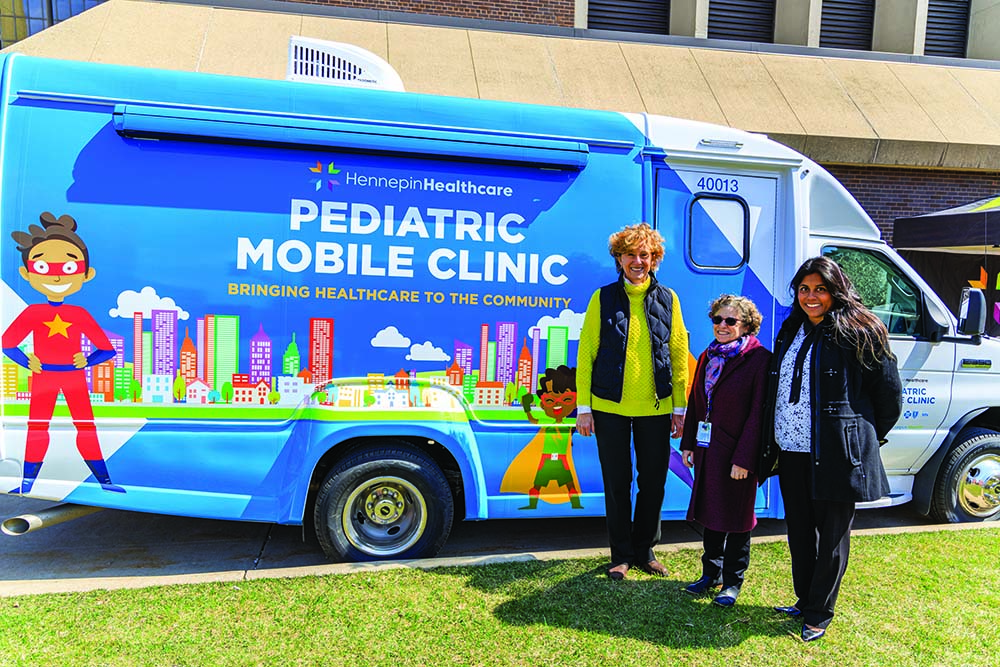
- Details
- By Sheyanga Beecher, CNP, MSN, MPH and Sims Ma
Vaccines have the power to protect us. For decades, life-saving immunizations have eradicated smallpox and almost eliminated measles, meningitis, and polio in this country. We rarely see these diseases in our communities because generations of families have recognized the importance of vaccines and made the decision to vaccinate loved ones. According to the Centers for Disease Control and Prevention, almost four million deaths worldwide are prevented each year because of vaccines. In the last three years, we have taken the success of all vaccines for granted. We can’t, nor should we, diminish the importance of vaccines.
Confidence in vaccines, let alone healthcare in general, does not come without first addressing historical trauma and mistrust within the American Indian community. When the COVID vaccine was introduced, this complicated combination may have triggered generational pain from memories of research in American Indian communities, national policies such as “kill the Indian, save the man,” and ethnocide of American Indians.
The COVID vaccine is highly effective in preventing complications, hospitalizations, and death from infection. However, historical trauma as well as misinformation and inconsistent messaging contributed to American Indian communities’ initially low COVID vaccination rates. In Minnesota, American Indians lagged behind their white counterparts in getting their first dose of the COVID-19 vaccine (MDH, 1/2021-7/2022) even though they were at greater risk for hospitalization and complications from the virus.
Unfortunately, racial disparities in immunizations also exist with basic, essential childhood vaccines such as measles and whooping cough. Recently, world leaders announced the largest sustained decline in childhood vaccinations in over 30 years. Current data shows even lower rates in communities of color. With the increased threat of vaccine-preventable diseases such as measles and polio, we must address the community’s lack of confidence in vaccines because our kids deserve this protection.
Three years ago, Hennepin Healthcare developed the Pediatric Mobile Health (PMH) community-based outreach program to address these challenges. The program’s goal is to decrease barriers to healthcare, improve immunization rates and help restore trust within the community. Lead nurse practitioner Amy Green notes, “There was a decline in the rate of childhood immunizations during the pandemic. When our patients are not protected, then our community is not protected.” The PMH team provides care to families outside their home in a kid-friendly mobile clinic. In addition to providing checkups and immunizations, the team also screens families for food insecurity, housing needs, transportation challenges and financial strains. The team refers families to a medical home, specialty care or community resources when needed. The PMH program conducts pop-up clinics at schools and Head Start centers. In addition, the team answers questions and concerns about vaccines at community town halls. The work has been well received and the program continues to grow.
Last year, PMH interviewed community leaders representing education, human services, media, and public health. The team also surveyed patients and held focus groups in the community. Here are some key findings from the community assessment:
- Trust is important to increase vaccine confidence, especially for American Indian community members residing within Minneapolis and the neighboring cities.
- Vaccine information must come from respected community leaders in partnership with healthcare members who share similar experiences and speak the same language. Health systems need to engage with community leaders and prioritize culturally appropriate outreach.
- Healthcare providers must devote time to understanding their patients’ fears and concerns, even if it means sitting in a space of uncertainty. This time spent is a key factor in building trust.
While progress is being made, the challenge remains. We need to protect our children and our communities from diseases as best we can. Many of these diseases can be prevented with a vaccine. If communities do not trust vaccines, we have work to do. This work is ours, both as community members and healthcare providers. The work requires building trust and partnerships so that we can provide culturally sensitive information that builds on what we have known for generations
Vaccines save lives by preparing our bodies to fight disease. One life lost to vaccine-preventable disease is one life too many. The work has begun – will you please join us?
Help us defend tribal sovereignty.
At Native News Online, our mission is rooted in telling the stories that strengthen sovereignty and uplift Indigenous voices — not just at year’s end, but every single day.
Because of your generosity last year, we were able to keep our reporters on the ground in tribal communities, at national gatherings and in the halls of Congress — covering the issues that matter most to Indian Country: sovereignty, culture, education, health and economic opportunity.
That support sustained us through a tough year in 2025. Now, as we look to the year ahead, we need your help right now to ensure warrior journalism remains strong — reporting that defends tribal sovereignty, amplifies Native truth, and holds power accountable.
 The stakes couldn't be higher. Your support keeps Native voices heard, Native stories told and Native sovereignty defended.
The stakes couldn't be higher. Your support keeps Native voices heard, Native stories told and Native sovereignty defended.
Stand with Warrior Journalism today.
Levi Rickert (Potawatomi), Editor & Publisher
